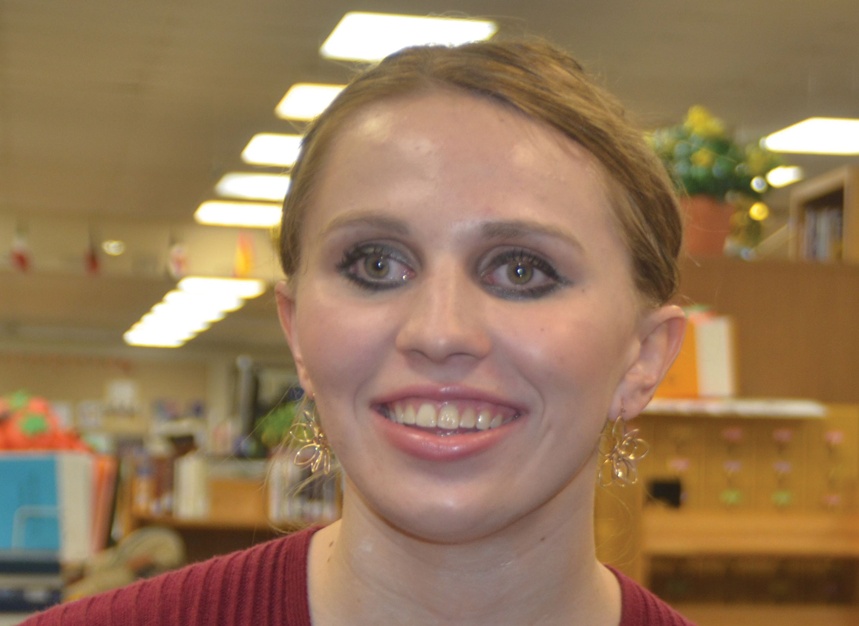Brittany Breen doesn’t like easy. Never has. Which is interesting when you consider that by the time she was eight months old she couldn’t see a thing, the result of a rare retinal disease. When you are that young and don’t remember seeing trees or birds or a deep blue sky, life is what it is – you don’t know anything beyond the darkness.
You figure everyone lives there with you. Mom. Dad. Aunt. Uncle. The kid across the street. It wasn’t until elementary school that Brittany began to learn she wasn’t like her peers, partly because they told her so. It was a tough time and a revelation, yet one she had to experience and eventually master.
Here’s the thing: She’s doing just fine.
Exceptional, in fact.
Last month she stood near the doorway of UTA’s indoor pool utterly pumped, saying how happy she was to have dropped her time in the Girls 200 Yard Freestyle, finishing fifth in her heat.
Yeah. Brittany swims.
She was just as satisfied earlier this year when she performed in the Lamar High School theater production of “To Be Young, Gifted and Black.”
Yeah. Brittany acts on stage.
Her teachers are hardly surprised by this since Brittany’s classes in math and English and the sciences and history are all advanced placement.
Yeah. Brittany is an “A” student fretting about what college to attend, what her entrance essay should say, whether she wants to stay in Texas or hightail it out of here.
To Brittany, now midway through her junior year, she’s just being what she’s always been: fearless. Persistent. Not always thrilled with some rules laid down by her parents.
Talking with her one day in the Lamar High School library, I learn that Brittany is fine with this attention even though she’s not the best on her swim team, isn’t No.1 in her class and hasn’t snagged a lead in a theater production.
She wants to avoid being portrayed as some kind of stereotype, heroic for simply getting out of bed and facing the world. She doesn’t want assumptions to be made that just because she can’t see and still function that she’s an inspiration. “We all have our challenges in life,” she tells me. “My friends have their challenges. Mine are different. Just that. No more. No less. I come to school, go to my classes, try to get good grades. I have friends I hang out with who accept me and understand me and treat me like everyone else. I try to integrate myself into the society of the high school and have friends who help with that by including me. I went to homecoming.”
The stereotype of which Brittany speaks is the one where we raise expectations that everyone with a disability – it doesn’t have to be blindness – is or should be an inspiration to the rest of us. The truth that shuts off our complaining.
You don’t want to inadvertently imply that a person with a disability lacks skill or has limited skills. Or unusual gifts.
Still, watching her swim competitively put me in the category of awe, even though she didn’t win. As she slithered through the water, Debbie Agorichas, a retired school teacher, walked along the side of the pool holding a long stick with a tennis ball at the end, giving Brittany a gentle tap on her head signaling time to flip and head back. Or stop.
“She’s one of my favorite people,” says Brian Dangelmaier, Lamar’s swim coach. “She’s tenacious. She’s has great leadership ability. Intelligent. People are always asking how are you going to do this or that. Once people hear that, they often turn back. They quit. Even those of us who are not blind.”
Which brings us to Brittany’s motto: try. Just try.
“If there’s something you want to do in life, just try to do it,” she says. “I can’t control my blindness. I don’t think that something I can’t control should control my life. That’s just my attitude.”
It’s a good one. For anyone.

















